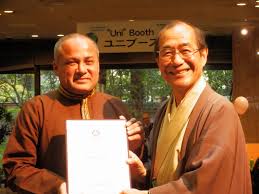
Introduction to the Topic
In an increasingly globalized world, the mobility of students across borders for higher education or employment opportunities has become commonplace. However, one significant challenge that Indian students may encounter when considering Japan as a destination is the recognition of their academic credentials. This article delves into the question: Does Japan accept Indian degrees?
Overview of the Education System in Japan
Japan boasts a well-structured and rigorous education system renowned for its high academic standards and emphasis on discipline. From primary education to higher education, the Japanese education system places a strong focus on cultivating critical thinking, problem-solving skills, and holistic development.
Comparison between Indian and Japanese Education Systems
Curriculum
In Japan, the curriculum is meticulously designed to balance academic knowledge with practical skills, ensuring students are well-equipped for real-world challenges. In contrast, the Indian education system often leans towards theoretical learning, with a lesser emphasis on practical applications.
Evaluation Methods
Japanese students undergo various assessment methods, including exams, projects, and practical demonstrations, which assess their comprehensive understanding of the subject matter. Indian evaluation methods primarily rely on written examinations, with less emphasis on practical assessments.
Recognition of Degrees
Japan has established stringent criteria for recognizing foreign degrees, ensuring that academic qualifications meet the standards set by Japanese educational institutions. While Indian degrees are not automatically accepted, they can be recognized through a thorough evaluation process.
Challenges Faced by Indian Degree Holders in Japan
Language Barrier
Proficiency in the Japanese language is crucial for Indian students seeking recognition of their degrees in Japan. Limited Japanese language skills can hinder communication and integration into the local academic and professional environments.
Cultural Differences
Cultural disparities between India and Japan can pose challenges for Indian degree holders, impacting their ability to adapt to the social and professional norms prevalent in Japanese society. Understanding and respecting Japanese culture is essential for successful integration.
Licensing and Certification Requirements
Certain professions in Japan require specific licenses or certifications, which may not be easily obtainable for Indian degree holders due to differences in educational and professional standards. Meeting these requirements is essential for pursuing careers in regulated fields.
Steps to Enhance the Acceptance of Indian Degrees in Japan
Language Proficiency
Indian students can enhance their prospects by improving their Japanese language skills through language courses, immersion programs, or self-study resources. Proficiency in Japanese significantly increases the chances of degree recognition and career advancement in Japan.
Cultural Adaptation
Adapting to Japanese culture involves immersing oneself in the local community, embracing customs and traditions, and developing interpersonal skills to navigate social interactions effectively. Cultural sensitivity and awareness facilitate smoother integration into Japanese society.
Skill Enhancement
Acquiring additional skills or certifications relevant to the Japanese job market can bolster the credentials of Indian degree holders, making them more competitive in their chosen field. Pursuing specialized training or professional development opportunities demonstrates a commitment to excellence.
Resources for Indian Students Seeking Recognition of Their Degrees in Japan
Several organizations and agencies provide guidance and assistance to Indian students navigating the process of degree recognition in Japan. Online platforms, forums, and support networks offer valuable resources and insights to facilitate a smoother transition.
Success Stories of Indian Degree Holders in Japan
Despite the challenges, many Indian individuals have successfully pursued higher education and established thriving careers in Japan. Their stories serve as inspiration for aspiring students, highlighting the possibilities and opportunities available with determination and perseverance.
Conclusion
While the acceptance of Indian degrees in Japan presents certain challenges, it is not insurmountable. By addressing language barriers, cultural differences, and licensing requirements, Indian students can enhance their chances of recognition and success in Japan. With dedication, adaptability, and the right resources, pursuing higher education or career opportunities in Japan is within reach for Indian degree holders.
FAQs
- Are Indian degrees widely recognized in Japan?
- Indian degrees are not automatically recognized in Japan. However, they can be evaluated for equivalence based on established criteria.
- What role does language proficiency play in degree recognition?
- Proficiency in the Japanese language is crucial for effective communication and integration into the Japanese academic and professional environments.
- How can Indian students enhance their chances of degree recognition in Japan?
- Indian students can improve their prospects by focusing on language proficiency, cultural adaptation, and skill enhancement relevant to the Japanese job market.
- Are there specific licensing requirements for certain professions in Japan?
- Yes, certain professions in Japan have specific licensing or certification requirements, which may vary depending on the field of specialization.
- **Where

Leave a Reply